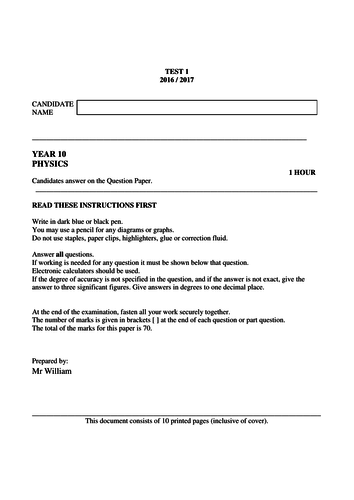Will2share_kam's Shop
Hi, and welcome to Will2Share Academy! I am currently a tutor running my own tutoring business specializing in teaching Physics, Chemistry and Mathematics for Cambridge O-levels. I constantly strive to create and provide quality teaching resources to teachers all around the world.


















